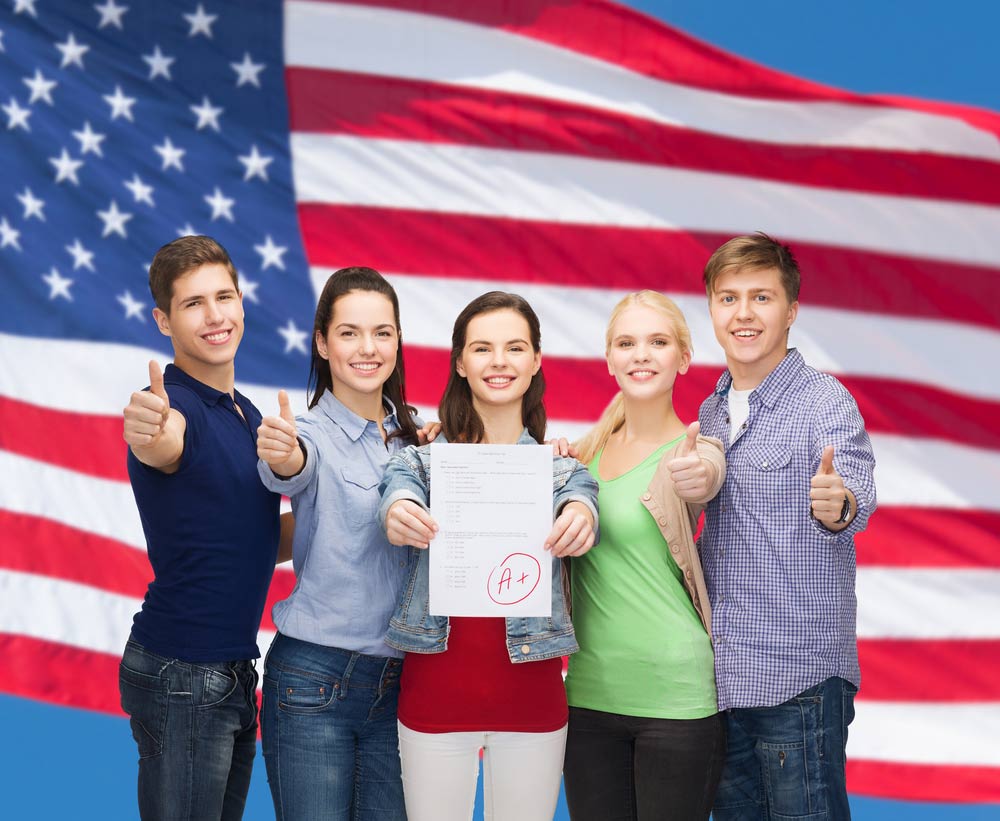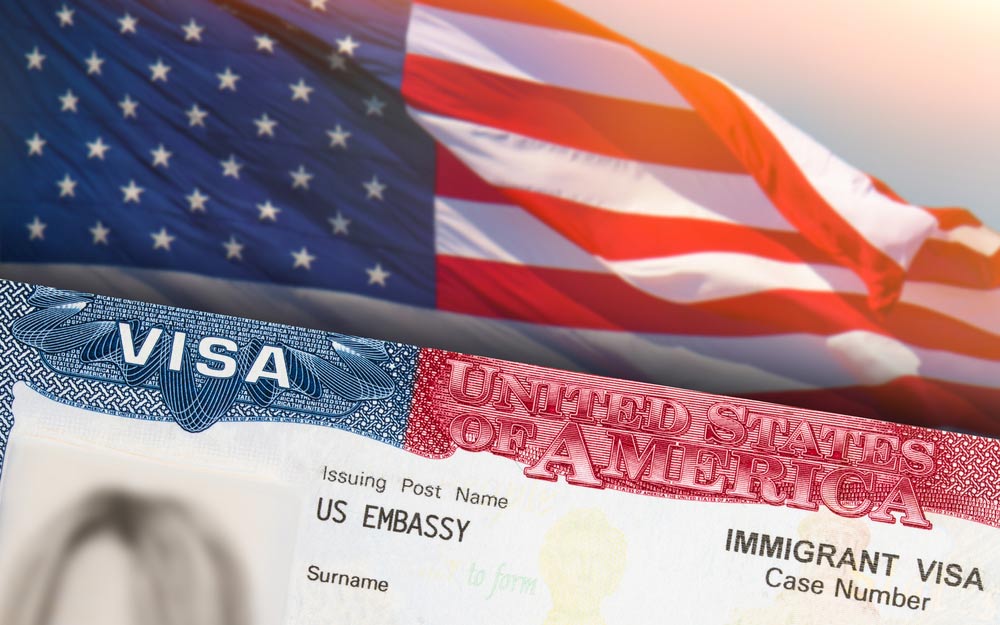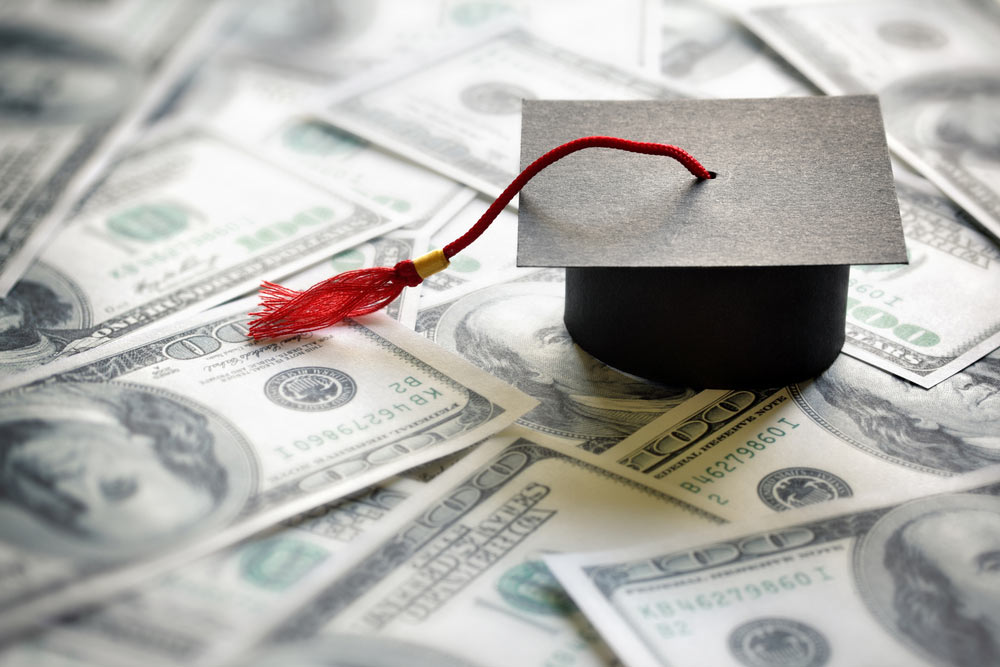Study in USA from Bangladesh for Higher Education: A Comprehensive Guide

Study in USA from Bangladesh for higher education is a critical first step on the path to becoming a world-class student and scholar. The United States provides an educational experience unlike any other due to its unmatched diversity of elite institutions and colleges, state-of-the-art research facilities, and a vibrant multicultural environment.
Studying in the USA opens doors to endless opportunities. Embrace academic excellence, personal growth, and cultural diversity as you build lifelong friendships and develop a global network of contacts. Plan your educational journey carefully, considering admissions requirements, scholarships, and visa regulations. Seek guidance from educational consultants and university advisors to ensure a smooth transition and make the most of your time abroad. Prepare to embark on an incredible adventure, broadening your horizons and unlocking a world of possibilities in the United States. It is important that you realise all aspects of the application procedure, the minimum requirements for obtaining a visa, and the variety of options accessible as you consider taking this momentous step towards realising your academic and professional goals.
This introduction seeks to shed light on what is needed for a smooth transfer from Bangladesh to higher education overseas by guiding prospective students through the interesting yet challenging route of studying in the USA. Additionally, we’ll explore career prospects post-graduation, underscoring why BD Expert Education Consultancy stands as a premier choice for those looking to study abroad from Bangladesh.
Why study in USA from Bangladesh for Higher Studies?

Academic Excellence:
The USA is home to numerous world-renowned universities and colleges known for their high-quality education and cutting-edge research. The emphasis on academic excellence ensures that students receive top-notch education and valuable skills.
Numerous Programmes:
Students can choose from a wide range of academic programmes and majors offered by American colleges, which enable them to customise their education to fit their interests and professional goals.
Research Opportunities:
The USA leads in scientific research and innovation. Studying in the USA provides students with access to state-of-the-art laboratories and research facilities, offering hands-on experiences and exposure to groundbreaking discoveries.
Internship and Job Opportunities:
The USA has a dynamic job market with numerous internship and employment opportunities across various industries. International students often benefit from Optional Practical Training (OPT) programs, enabling them to gain work experience related to their field of study after graduation.
Cultural Diversity:
Students from all over the world are welcomed in the United States, which is a fusion of cultures. Students are introduced to a variety of viewpoints while studying in such a diversified atmosphere, which enhances their knowledge of the world.
Networking and Connections:
American institutions offer plenty of networking opportunities and cultivate a strong sense of community. For future employment opportunities, establishing relationships with professionals, academics, and colleagues may be quite beneficial.
Personal Growth:
Studying abroad in a different country challenges students to adapt to new environments, become independent, and develop resilience, fostering personal growth and self-confidence.
Language Proficiency:
For international students looking to improve their English language skills, studying in the USA provides an immersive environment where they can practise and enhance their fluency.
Global Recognition:
Degrees from reputable American universities carry significant weight and are recognized worldwide, adding credibility to a student’s academic qualifications.
Cultural Experiences:
The USA offers a rich blend of cultural experiences, from attending local festivals to exploring historical landmarks, giving students the chance to create unforgettable memories.
Scholarship Opportunities:
Many American universities offer scholarships and financial aid programs for international students, making education in the USA more affordable and accessible.
Innovation and Entrepreneurship:
The USA has a vibrant entrepreneurial ecosystem, with numerous success stories of startups and innovations. Students studying in this environment are encouraged to think creatively and pursue their entrepreneurial dreams.
USA Student Visa Requirements
Valid Passport:
Ensure your passport is valid for at least six months beyond your intended stay in the US.
SEVIS I-20 Form:
Issued by your SEVP-approved school, this form confirms your enrollment and registers you in the Student and Exchange Visitor Information System (SEVIS).
SEVIS I-901 Fee Receipt:
Pay the SEVIS I-901 fee before your visa interview.
DS-160 Confirmation Slip:
Complete the non-immigrant visa application form (DS-160) and keep the confirmation slip.
Interview:
Most applicants between 14 and 79 years of age must attend a visa interview at the U.S. Embassy or Consulate.
Passport-sized Photos:
Follow the specifications for visa photos.
Understanding Tuition Fees and Visa Expenses


F-1 Visa (Academic Studies):
Most common for full-time international students pursuing academic programs.
M-1 Visa (Vocational Studies):
For those pursuing vocational courses.
J-1 Visa (Exchange Students):
Approved for work-and-study-based exchange programs (e.g., visiting scholars, camp counsellors ).
The cost of studying in the USA varies significantly based on the institution and program. On average, annual tuition fees can range from $20,000 to $45,000 for undergraduate programs and between $20,000 to $40,000 for postgraduate courses.
Living expenses, including accommodation, food, transportation, and health insurance, can add approximately $10,000 to $18,000 per year.
Essential Documents for the USA Study Visa

When applying for a student visa, gather the following documents:
Valid Passport:
Ensure it meets the six-month validity requirement.
Form I-20:
Issued by your SEVP-approved school.
SEVIS I-901 Fee Receipt:
Proof of payment.
DS-160 Confirmation Slip:
From your visa application.
Appointment Letter:
For your visa interview.
Passport-sized Photos:
As per specifications.
Educational Transcripts:
School and college records.
Financial Proof:
Demonstrate sufficient funds to cover tuition and living expenses.
English Proficiency Test Scores:
Such as Duolingo, PTE, TOEFL or IELTS.
Resume/CV:
Highlight your achievements and experiences.
Scholarships: Making Education Accessible

Several scholarships are available for Bangladeshi students to study in the USA, including:
Fulbright Foreign Student Program:
Offers scholarships for graduate students, young professionals, and artists to study and conduct research in the USA.
Global UGRAD Program:
Provides one-semester scholarships to undergraduate students for non-degree full-time study combined with community service, professional development, and cultural enrichment.
Study in the USA without IELTS
Some U.S. universities allow students to study without an IELTS score, such as TOEFL, Cambridge English exams, or the PTE Academic test, Duolingo as an alternative to the IELTS.
Students can also show their English skills by taking English-language classes, programs, or tests like the Cambridge English Advanced (CAE) or the Test of English for International Communication (TOEIC).
There are also other language proficiency criteria such as:
Intensive English Language Program (IELP):
Completion of an IELP at the university.
Alternative English Proficiency Proofs:
Such as a high school diploma from an English-medium institution or a letter from an institution confirming English proficiency.
It is necessary to look into the exact requirements and alternatives for each university, as these may differ based on their institution and degree.
Career Prospects After Graduation

Graduating from a U.S. university opens up numerous career opportunities, both within the USA and internationally. Optional Practical Training (OPT) allows students to work in their field of study for up to 12 months after graduation, with STEM graduates eligible for a 24-month extension. This practical work experience can significantly enhance job prospects.
Why BD Expert Education Consultancy?
BD Expert Education Consultancy stands out as a leading consultancy for Bangladeshi students aspiring to study abroad. With a deep understanding of the intricacies of the admission and visa process, personalised guidance, and a commitment to finding the best match between students and universities, BD Expert Education Consultancy ensures a smooth and successful journey to studying in the USA.
Embarking on higher education in the USA from Bangladesh is a transformative experience that requires careful planning and preparation. By leveraging the right resources and guidance, such as that provided by BD Expert Education Consultancy, students can navigate this journey with confidence, ensuring they maximise their educational and career opportunities in the USA. This guide aims to equip students with the knowledge and tools needed to embark on this exciting journey, making the dream of studying in the USA a tangible reality.
Want To Study in USA?
We are here to help
FAQ Related to Study In USA
The application process may vary from university to university, but generally, you need to complete an online application, provide academic transcripts, standardized test scores (like IELTS, MOI, OIETC, Duolingo), letters of recommendation, and a statement of purpose.
Pursuing a Master’s in the US can be a transformative decision, enhancing technical skills and boosting your CV. Look for institutions emphasizing practical knowledge, hands-on experience, and job readiness. US universities value diversity, providing a stimulating environment for cross-cultural understanding and networking. Graduate programs in the US are divided into master’s and doctoral degrees, with various fields of study available. Start by listing your interests from your undergrad program, find your niche, and consider language and aptitude tests for university applications. Prepare for your preferred course intake accordingly.
Receive an Acceptance Letter: Obtain an acceptance letter from a SEVP-approved U.S. university or college. Ensure that the institution provides the necessary Form I-20 or DS-2019 for your visa application.
Pay the SEVIS Fee: After receiving the Form I-20 or DS-2019, pay the SEVIS (Student and Exchange Visitor Information System) fee. You can do this online through the SEVIS website.
Complete the DS-160 Form: Fill out the DS-160 Nonimmigrant Visa Application form online through the U.S. Department of State’s Consular Electronic Application Center. This form is required for most nonimmigrant visa applications.
Schedule Visa Interview: Visit the website of the U.S. embassy or consulate in your country to schedule a visa interview. Interviews can be in high demand, so book your appointment well in advance.
Gather Required Documents: Prepare the necessary documents, which may include:
- Passport valid for travel to the USA
- DS-160 confirmation page
- SEVIS fee payment receipt
- Form I-20 or DS-2019
- Passport-sized photos as per specifications
- Academic transcripts and test scores
- Financial evidence showing sufficient funds for tuition and living expenses
- Proof of ties to your home country (to demonstrate your intention to return after studies)
Attend the Visa Interview: On the scheduled date, attend the visa interview at the U.S. embassy or consulate. Be prepared to answer questions about your study plans, ties to your home country, and financial capability. Be honest and confident in your responses.
Wait for Visa Processing: After the interview, the consular officer will decide whether to approve or deny your visa application. Processing times may vary, so be patient.
Receive Visa and Travel to the USA: If your visa is approved, you will receive your passport with the visa attached. Make sure to check the visa expiration date and other details. You can then plan your travel to the USA for your studies.
Yes, there are scholarships available for international students in the USA. Scholarships are like rewards that universities and organizations give to students to help them with their studies. Some scholarships are given based on how well students perform in school or if they have special talents. Others are given to students who need financial help to pay for their education. There are also scholarships for students from specific countries or for those who are good at sports.
Merit-Based Scholarships: These scholarships are awarded based on academic excellence, achievements, talents, or leadership qualities. International students with outstanding academic records or exceptional talents in areas like sports, arts, or community service may be eligible for such scholarships.
Need-Based Scholarships: These scholarships are awarded to students based on their financial need. International students with limited financial resources may qualify for need-based scholarships to help cover tuition and living expenses.
Country-Specific Scholarships: Some U.S. universities offer scholarships exclusively for students from specific countries to encourage cultural diversity on campus.
Government Scholarships and Fellowships: Some governments, including the U.S. government, provide scholarships and fellowships for international students to study in the USA.
Private Foundations and Organizations: Numerous private organizations and foundations offer scholarships to international students pursuing higher education in the USA.
Athletic Scholarships: International students with exceptional sports abilities may be eligible for athletic scholarships offered by U.S. colleges and universities.
Program-Specific Scholarships: Certain academic programs or departments within universities may offer scholarships to attract talented students to their fields of study.
It’s important to note that the availability and criteria for scholarships can vary significantly from one institution to another. Some scholarships are automatic, while others require a separate application. Be sure to research the scholarships offered by the universities you are interested in and check their eligibility requirements and application deadlines.
The English language proficiency requirements for admission to US universities can vary depending on the university and the specific program of study. Generally, international students whose native language is not English are required to demonstrate their English proficiency through standardized tests. The most commonly accepted English language proficiency tests are:
IELTS (International English Language Testing System): IELTS is the widely accepted test for English language proficiency. It assesses the language skills of candidates and is recognized by many US universities.
Duolingo English Test: This is a relatively newer option, and some universities have started accepting the Duolingo English Test as an alternative to TOEFL and IELTS.
PTE Academic (Pearson Test of English Academic): Some universities may also accept PTE Academic as proof of English language proficiency.
- MOI (Medium Of Instruction): if a student from Bangladesh pursued their degree in the USA where English is the medium of instruction, they might be issued an MOI certificate stating that their degree was completed in English.
Students with an F1 visa, which is a non-immigrant student visa for academic studies in the United States, are permitted to work for up to 40 hours per fortnight (two-week period) during the academic term. However, during scheduled vacations and breaks, they are allowed to work full-time without any hourly restrictions. This opportunity allows students to gain practical work experience, earn income to support themselves, and enhance their understanding of American culture and work practices while pursuing their academic goals. It’s essential for students to adhere to the regulations and maintain their visa status to ensure a successful academic and work experience in the U.S.
Bangladeshi students in the US can choose between on-campus or off-campus accommodation. Many universities offer dorms, sororities, and fraternities for international students, but securing a slot requires early application. Off-campus options include shared apartments with fellow students or homestays, often available through the university or notice boards. Rental costs vary by city. Arriving early may necessitate short-term accommodation like hostels or temporary housing provided by the institution. Respect house rules in homestays and understand hosts’ motivations are not solely financial.
Undergraduate Programs:
- Associate’s Degree: Usually takes 2 years to complete.
- Bachelor’s Degree: Typically takes 4 years to complete. However, some accelerated programs or degree options may allow students to finish in 3 years.
Graduate Programs:
- Master’s Degree: The duration of master’s programs varies, but they generally take 1-2 years to complete. Some professional master’s programs may take longer.
- Doctoral Degree (Ph.D.): Ph.D. programs typically take around 5-7 years to complete. The duration may vary based on the field of study, research progress, and individual factors.
It’s important to note that certain professional degrees, such as medical school, law school, or some engineering programs, may have different durations and requirements compared to traditional academic programs.
Cultural diversity on U.S. university campuses is typically quite significant and varied. The United States is a country known for its diverse population, and this diversity is well-reflected on college and university campuses across the nation. Students from various ethnic, racial, religious, and socio-economic backgrounds come together to pursue their education, creating a rich and vibrant multicultural environment.
Several factors contribute to the cultural diversity on U.S. campuses:
International Students: U.S. universities attract a large number of international students from all over the world. These students bring their unique perspectives, languages, and traditions, enriching the campus community.
Domestic Diversity: Within the United States, there is a diverse range of communities representing different racial and ethnic backgrounds, and these students add to the cultural mosaic of the campus.
Academic Programs: Universities with a wide range of academic programs and specialties often draw students from various regions and countries with specific interests and talents.
Student Organizations: Many universities have student-led organizations and clubs that celebrate and represent specific cultures, religions, or identities. These groups provide opportunities for students to share their heritage and traditions with others.
Campus Events and Celebrations: Universities often host cultural events, festivals, and celebrations that showcase the diversity of their student body. These events foster cross-cultural understanding and appreciation.
Faculty and Staff: Diversity is not limited to students; faculty and staff members from different backgrounds also contribute to the cultural richness of the campus environment.
Inclusive Policies: Many universities actively promote inclusivity and diversity, creating a welcoming space for individuals from all walks of life.
Yes, there are plenty of opportunities for research and internships during your academic program in the United States. U.S. universities and colleges actively encourage students to engage in research and gain practical experience through internships, as these experiences can greatly enhance the overall educational experience and career prospects.
Research Opportunities:
Undergraduate Research: Many universities offer research opportunities for undergraduate students to work alongside professors and researchers on various projects. This can be an excellent way to delve deeper into your field of study and gain valuable research skills.
Research Assistantships: Some graduate students may be eligible for research assistantships, where they work with faculty members on research projects related to their area of interest. These assistantships often come with financial benefits like stipends or tuition waivers.
Research Centers and Institutes: Universities may have specialized research centers and institutes where students can get involved in cutting-edge research in specific fields.
Internship Opportunities:
Curricular Practical Training (CPT): International students on an F-1 visa may be eligible for CPT, which allows them to work off-campus in internships related to their academic field.
Optional Practical Training (OPT): After completing their degree, F-1 students can apply for OPT, which allows them to work in their field of study for a certain duration. OPT can be used for internships as well.
Career Services: Most universities have career services departments that assist students in finding internships and job opportunities relevant to their majors.
Industry Connections: Universities often have strong connections with various industries and employers, providing students with access to internship opportunities.
Don't take our word for it
See what our students say about us

Md. Shahadat Hossain
MSc. In Management, BPP University, UKThanks for making my dreams come true. A worthy place that I would highly recommend for any kind of education consultation. May Allah bless them.

Mrs. Rabeya Wazed
Masters in INT'L MBA, University of Wolverhampton, UKGreat service of BD Expert Education and becoming possible for me to achieve my destination of higher education in UK. Thanks to BD Expert Education for supportive co-operation with us.

K M Kamrul Huda
Bd expert education is one of the most reliable agencies i have ever faced.The agents who are working there are the most supportive human beings.I will always recommend everyone who are dreaming to go outside should go there because they are too good with all the cases.

Usha Rani Paul
MSc in International Business, Ulster University, UKI would say BD Expert is a very trustworthy agency. They are cordially helpful to make our dreams come true. I highly recommend the students to come hear and achieve their dream.
